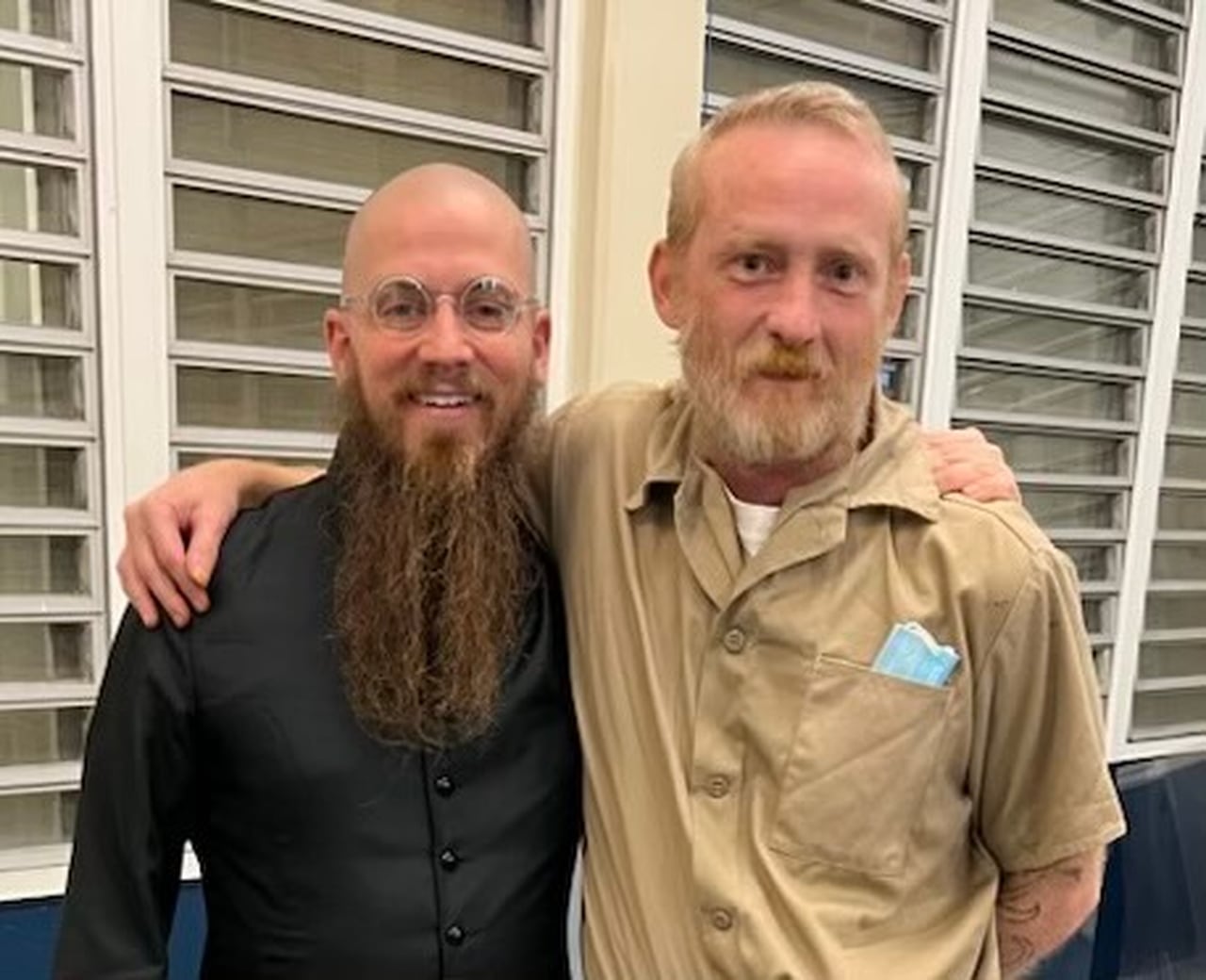Alabama Death Row spiritual adviser: âMcWhorter was a murderer⦠Alabama was tooâ
Seeing a friend be executed never gets easier, the Rev. Jeff Hood said.
But it does fuel his rage.
“Casey McWhorter was a murderer and tonight, all of Alabama was too,” he said during a late-night phone call Thursday.
Hood is a priest and “public theologian” and the spiritual adviser for Casey McWhorter, who was executed by the state of Alabama on Thursday night. McWhorter died by lethal injection as punishment for the 1993 shooting death of Edward Lee Williams Sr.
The execution happened at William C. Holman Correctional Facility in Atmore after the U.S. Supreme Court declined Thursday afternoon to review the case and rejected McWhorter’s appeal for a stay.
“When I first encountered Casey, he was pissed off at the world and where he is at,” Hood said a few hours after McWhorter was put to death. “(Casey) was interested in more. He didn’t really know how to describe that more, but he would say things to me like, ‘Jeff, can you help me be who I am?’”
Hood, who currently lives in Arkansas, works with death row inmates across the country. He started talking with McWhorter several months ago, and they developed a close bond—they were as much friends as congregant and priest.
“I do know that on the drive down, as the tires rolled on, I felt like I was traveling to see a friend much more than I was traveling to witness something horrible,” Hood said.
He attended three executions this year, one in Texas and two in Oklahoma, before Thursday’s, which was his first in Alabama. Now, he’s signed on to be the spiritual adviser for Kenneth Eugene Smith. In January, Smith is set to be the first inmate in the world executed using nitrogen hypoxia.
Back when McWhorter first asked Hood for his advice, Hood felt a familiar question. “What I heard was, ‘Can you help me be the person God created me to be?’ That’s a powerful question. It’s a very human question… it’s a question were all asking.”
One way Hood helped McWhorter come into his own, he said, was to encourage the 49-year-old to tell his story instead of shy away from it. Hood helped him set up interviews, including with AL.com, and wrote about McWhorter on his blog.
“As soon as we began with him telling his story, it’s almost like I watched a bird go to the window of his cell and just be free…. I was encountering a new person,” Hood said.
The feeling was mutual.
Before his death, McWhorter said via a phone interview that Hood changed his life. “I will proudly tell you if it wasn’t for Jeff, I wouldn’t be where I’m at now in terms of peace and spirituality. He’s worked a miracle on me,” he said.
The two met in person for the first time Monday and Hood spent the rest of McWhorter’s days with him and his family.
McWhorter’s last meal was Turtle candy—a confection he animatedly talked about during a Wednesday interview with AL.com.
While Hood described some parts of Alabama’s process as unprofessional, including walking through “uninhabitable” parts of the prison and hearing some workers joking throughout the afternoon, he said prison workers didn’t have any issues accessing McWhorter’s veins to start an intravenous line for the lethal three-drug mixture. “They had no trouble with the line,” he said.
Issues accessing veins have been a longstanding problem for Alabama, ending with several executions having to be called off last year after workers couldn’t start IVs before the inmates’ death warrants expired. There was also controversy over how workers started an IV for Joe Nathan James’ execution in 2022.
After McWhorter was taken from the holding cell, his IV was started and he was in the execution chamber, Hood entered. He anointed McWhorter with oil and read a Bible passage, before stepping back and allowing the execution to go forward.
He stood and watched as McWhorter said his last words—apologizing to the victim’s family and calling out the prison’s warden, who was once fired from his post as an Alabama State Trooper for “mercilessly beating a woman”—and then laid his head back.
After the drugs started flowing and the microphone that carries sound to the three witness rooms was turned off, Hood recalled McWhorter leaned back and said, “I’m coming home Lord, I’m coming home.”
Before McWhorter died, Hood knew he was ready. “He was telling me he can’t wait to meet God because he would be meeting the blank slate, and for the first time in his life, he would have a blank slate.”
When asked if the executions of people he has grown close to anger him, Hood stopped to think. “I am angry, but even more than that, I think rage is a good word… I think that rage is something that isn’t necessarily acting out, punching, or trying to disrupt an execution… (It’s) a silent festering that propels my work and keeps me fighting for the next guy.”
“I can see (the guys I’ve worked with) cheering me on. I have no doubt that I will see Casey McWhorter in my life and in my mind cheering me on. There’s a beauty in that and there is a rage in that,” he said.
“Rage is a beautiful thing. Jesus tore up the temple. I hope we tear up the death penalty.”
